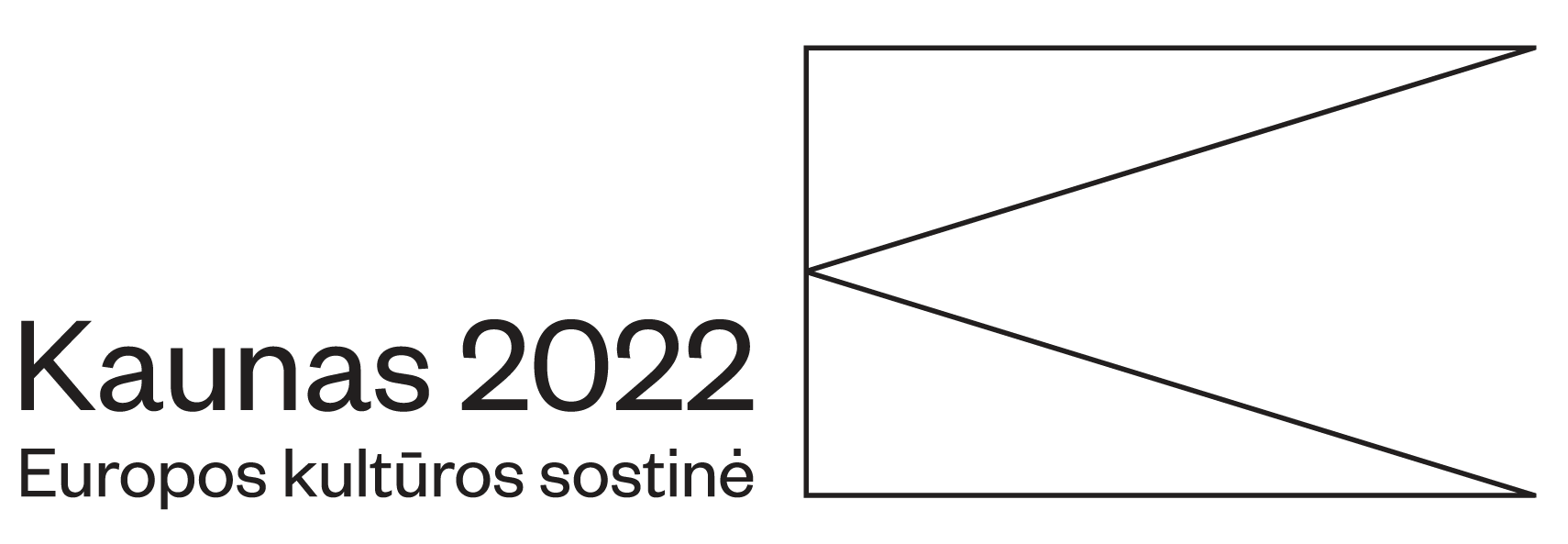Brigitta Bödenauer is a sound and installation artist, experimental filmmaker and DJ from Vienna, Austria. After taking up a residency in Matters, an industrial culture programme of Kaunas 2022, she spent countless hours in the objects of Kaunas fortress, recording the sounds and exploring the spaces. Her performance in one of the objects, a former gunpowder warehouse, will coincide with the launch of the inaugural interdisciplinary culture heritage festival ‘Baterija’ (Battery) on Friday, September 28th. Introduced by Daina Pupkevičiūtė, the curator of Matters, we sat down with Brigitte a couple of days before that and talked about her background as well as her impressions of Kaunas and its fortress.
How did you become interested in industrial sound in general? Is it something you have been passionate about from, say, early teenage years?
Yes and no. It was my late teenage years when I heard Throbbing Gristle for the first time. Then, of course, Einstürzende Neubauten and other industrial bands from the 80s. I grew up in the countryside and moved to Vienna in 1990 or 1991. I started to DJ from the very beginning. In DJing, I was not so much interested in dancefloor-oriented music. I preferred DJ sets that had the characters of a radio play. I still work with a lot of layers to create an immersive atmosphere. So, it was somewhere in between the industrial scene and 90s Viennese experimental music. Mego, the experimental electronic music independent record label, was starting up back then. Of course, there’s also weird electro and the darker side of techno, experimental techno, acousmatic music and modern music. I think you feel all of these influences in my work.
In the 90s and later, I also organised music, sound and video events and festivals. I have also taught for students, being an autodidact myself, subjects like video editing; as well as theatre, media and film theory. At some point, started to make short music and abstract films, which I still continue to do.
How has the sound of Vienna changed since the 90s?
It’s, of course, different now, because of the general situation. 90s were quite wild, it was fun, it felt like anything was possible. Even back then, there were not so many venues for this kind of music in Vienna. The club scene is still quite small, but it exists. The experimental music is again very big, especially improvisational music. Noise has got a little bit smaller. Complicated electro and techno are coming back with the younger generation of musicians. They have a different approach and background, but they still carry the industrial spirit. Some of them have education in visual arts, which is also different from the 90s. Generally, it’s quite a healthy scene of experimental electronic music.
Why did you decide to take up the residency in Kaunas?
I met Daina (Daina Pupkevičiūtė is also a sound artist and goes by the name Daina Dieva) in Wroclaw, where we both attended residencies last year in October. In Wroclaw, among other things, I did a workshop on sound that represents alienation and isolation, which Daina attended. I did a composition from the material – that’s how we got to know each other musically. So, Daina told me about the possibility in Kaunas.
On the moment, I am working on an installation and performance piece that focuses on resistance. Sound-wise, I started to work with sounds from protests. Daina told me about the Kaunas fortress which was built to protect the East from the West, more or less. This idea stuck with me. When I came, we found this very nice sounding barrack that was used for storing ammunition, and that’s where I started to record sounds and will continue to do it until the end of my residency. Kaunas fit well in my current project about political sounds.
Is it your first encounter with a 19th-century fortresses?
Definitely. More dominant in Vienna are bunkers that were built in the 20th century. For me, these bunkers are a bizarre places to be. It’s somehow powerful and creepy at the same time, also distractive. It’s the first time I record in such a place. It’s not easy because of the extreme reverb. The space is almost 100 m long.
It should be challenging to present your material in such a place – the warehouse you’ll perform in is not that big, but still very spacious.
For me, the most important thing is the sound itself. I like to work with reverb a lot, so it’s perfect. But I am not focused on field recordings, I work with a lot of synthesisers and digitally generated sounds. You can feel the reverb as a gloomy element of my work, but it’s not the main thing. More important for me is the generated atmosphere.
The space on Friday – the old gunpowder warehouse – will be part of your performance, right?
Of course, it’s unavoidable – the space there is very dominant. The reverb is very different from the area I recorded the sounds, it’s not so extreme in the event location. I guess my performance will need a little bit of concentration and maybe even sitting. I’ll see!
You mentioned that you met Daina in Wroclaw, Poland. Is it something that you like to do – explore the sounds of different cities?
It’s not something I regularly do. The Wroclaw residency was probably my first one. It depends very much on the place and information you can gather before going there, and how cooperative the locals are. The Wroclaw residency was longer, and it was also a combination of many activities. In Kaunas, it’s very different – I do not work with other people, and I have different problems to solve, regarding the space.
What will be the outcome of the residency? I know Daina will be releasing a CD compilation with the work of all the residents at the end of the year.
When I’m back in Vienna, I will think what I can do with the recorded material and my synthesisers, and will then prepare a composition.
Are the recording process and performing more critical for you than the actual release of your work?
The performance and process, for sure. What interests me most is the hours and weeks of working in the studio with the character of the sound. Performing, too – I love playing with spaces and sound systems, this is where my interest in acousmatic music becomes essential. Not so much the releases. Maybe it’s because I am a bit of a perfectionist.
I am not sure how much free time you have had in Kaunas, but it’d be interesting to hear your impression.
It’s my first time in Lithuania. What is impressive is the modernist architecture, as well as the 19th-century buildings and socialist-era buildings. I have already made a lot of photos, as the light is beautiful at this time of the year. It’s quite a contrast for me, coming from Vienna, which is rich with heritage from another époque. The atmosphere is also different. I live in the centre of Kaunas, but I still haven’t made it to the Old Town – I will have to find time for that! Oh, I also visited the Kaunas International Film Festival and watched a documentary about Emma Goldman who was born here, in Kaunas.

